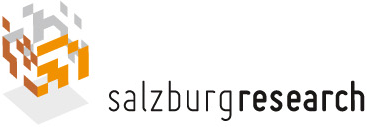Welcome to the online course „Making Young Social Innovators“!
We welcome you on board of this four-week learning journey, which will open up new ways of training young learners in creativity, social innovation and entrepreneurial thinking in makerspaces. In this unit we, first, provide an overview of the course and, secondly introduce you to the DOIT learning approach and programme.
At the beginning of the course, we will introduce you to
- the structure of the course,
- how to communicate with the course lecturers and colleagues and
- the requirements for all modules (assignment for official qualification).
Feel free to contact Eva Hollauf, B.A. from the project coordinator Salzburg Research (eva.hollauf@salzburgresearch.at), if you have questions about the project, the course content or social innovation know-how.
We would also like to draw your attention to an additional offer: Every week you can post questions in the forum, which our course lecturers will answer in a live session every Wednesday at 4 pm CET (dates: 20 May, 27 May, 3 June, 10 June). This allows especially interested people to get more information about the topic and receive answers to questions that might not have been covered in the course. In addition, you will have the opportunity to get to know your fellow learners personally and to exchange ideas.
The dates and access to the live session will be made available in the forum every week. We are looking forward to a fruitful exchange and getting to know you!
Make yourself familiar with the course structure and the team:
Mit dem Klick auf das Bild werden durch den mit uns gemeinsam Verantwortlichen Youtube (Google Ireland Limited) das Video abgespielt, auf Ihrem PC Skripte geladen und Cookies für die Dauer von bis zu 2 Jahren gespeichert sowie personenbezogene Daten erfasst. Mit Hilfe der Cookies ist Youtube in der Lage, die Aktivitäten von Personen im Internet zu verfolgen und Werbung zielgruppengerecht auszuspielen. Datenschutzerklärung von Youtube
Make yourself familiar with the DOIT Learning Programme:
How can young learners work together and make creative solutions for societal issues?
Europe needs more young people with an entrepreneurial mind-set and skills able to turn creative ideas into innovations that make our society more liveable and sustainable.The aim of the DOIT learning programme is to empower girls and boys from 6 to 16 years to learn together with teachers and other facilitators, to develop the creative and social skills needed by innovative citizens. They will learn how to find creative solutions, make and explore them with a first prototype and share this experience. Thus, the DOIT approach comprises three facets:
- Social Innovation Knowhow: we see young people are engaged citizens, who can tackle societal issues and develop innovative solutions.
- Entrepreneurial Education: The DOIT toolbox materials support the development of entrepreneurial mindsets and skills, as well as social businesses through direct learning experiences.
- Makerspace and Digital Fabrication Tools: DOIT builds upon open workshops with digital tools and maker education as a core.
Watch the video about the background to the programme:
Karina Svendsen, Assistant Professor from the University College South Denmark presents to you the seven learning elements, which are helpful for launching a social innovation project.
Mit dem Klick auf das Bild werden durch den mit uns gemeinsam Verantwortlichen Youtube (Google Ireland Limited) das Video abgespielt, auf Ihrem PC Skripte geladen und Cookies für die Dauer von bis zu 2 Jahren gespeichert sowie personenbezogene Daten erfasst. Mit Hilfe der Cookies ist Youtube in der Lage, die Aktivitäten von Personen im Internet zu verfolgen und Werbung zielgruppengerecht auszuspielen. Datenschutzerklärung von Youtube
Get some additional insight on maker education:
Karien Vermeulen, Head of Programme Education from WAAG, gives you some insight into the questions why future innovators profit from maker education and how it can foster creativity in the next video:
Mit dem Klick auf das Bild werden durch den mit uns gemeinsam Verantwortlichen Youtube (Google Ireland Limited) das Video abgespielt, auf Ihrem PC Skripte geladen und Cookies für die Dauer von bis zu 2 Jahren gespeichert sowie personenbezogene Daten erfasst. Mit Hilfe der Cookies ist Youtube in der Lage, die Aktivitäten von Personen im Internet zu verfolgen und Werbung zielgruppengerecht auszuspielen. Datenschutzerklärung von Youtube
Assignment: Make, Share & Reflect
Now, we really want to get to know you! For this purpose, we invite you to sit back and remember who actually motivated and inspired you to try new stuff, build things yourself and pursue your goals? Please share this story about your Do-It-Yourself role model – your fictional or a real character of a DIY Superhero with us in the forum.
Task 1: Please draw or build your DIY Superhero with any kind of material and tools you prefer. Maybe the DOIT-DIY Superhero template helps: Available here: https://www.doit-europe.net/toolbox#/material/my-super-hero.
Maybe you want to try a tool or material you never used before? How about using your trash and create an upcycled superhero sculpture? You could as well use a 3D modeling software such as Tinkercad, or a coding tool for beginners such as Scratch. Challenge yourself and surprise us!
Test your knowledge and understanding about Making Young Social Innovators!
Quiz Unit 1: How can young learners work together and make creative solutions for societal issues?
 Methodenpool
Methodenpool